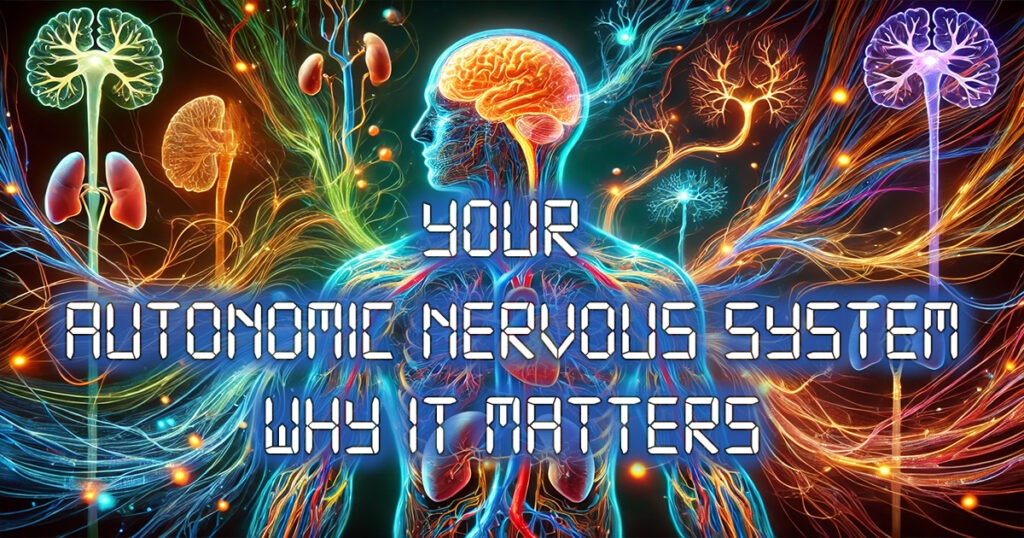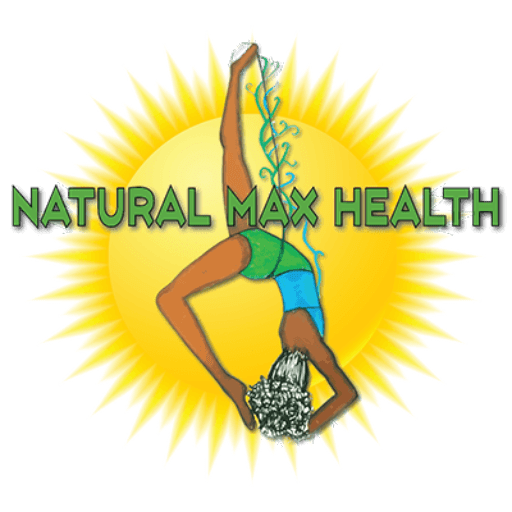How the Autonomic Nervous System Affects Your Health

Imagine living life on autopilot – your heart beats steadily, your lungs expand and contract, and your stomach digests food without you giving any of it a second thought. This incredible orchestration happens seamlessly thanks to the autonomic nervous system (ANS), a powerhouse within us that keeps essential functions running smoothly, even while we’re unaware. Whether you’re in a moment of calm or facing a sudden burst of stress, the ANS ensures that your body is primed to respond. In this article, we’ll dive into the fascinating dynamics of this system and uncover how it seamlessly manages the most vital processes of our existence, as well as what happens when it malfunctions. More importantly, we will explore methods to reverse or prevent diseases that occur when there are issues with the ANS.
Structure of the Autonomic Nervous System
The autonomic nervous system (ANS) is a part of the nervous system that controls involuntary bodily functions, such as heart rate, digestion, breathing, blood pressure, and sweating. It operates without conscious thought and is often described as the “rest and digest” or “fight or flight” system, depending on the situation. The ANS is divided into the sympathetic (fight or flight) and parasympathetic (rest and digest) divisions. Let’s delve deeper into this intriguing system to learn more about how our body functions.
The Sympathetic Nervous System (fight or flight)
The sympathetic nervous system (SNS) is a network of nerves that activates the body’s “fight-or-flight” response. It is activated when a person is stressed, in danger, or physically active by redirecting oxygen-rich blood to areas of the body that need it most during intense physical activity. The SNS is a powerhouse, responsible for a multitude of vital functions, including:
- Increasing heart rate and blood pressure
- Increasing breathing rate
- Dilating pupils
- Narrowing blood vessels
- Decreasing digestive juices
- Improving eyesight
- Increasing alertness and attention
- Affecting mood and memory
- Affecting sleep-wake cycle
The Parasympathetic Nervous System (Rest and Digest)
The parasympathetic nervous system (PNS) is a network of nerves that helps the body relax and conserve energy. The PNS is active when the body is at rest. It is composed of spinal nerves that extend from the sacral region of the spinal cord. The PNS innervates the head, viscera, and external genitalia. The PNS uses the vagus nerve to send impulses from the brain to the body and back. The vagus nerve is particularly important to the PNS, carrying 75% of all parasympathetic fibers. Critical functions of the parasympathetic nervous system include:
- Decreased heart rate: Slows down the heart rate to conserve energy when the body is relaxed.
- Stimulated digestion: Increases stomach acid secretion, intestinal motility, and enzyme production to aid digestion.
- Bladder contraction: Causes the bladder muscles to contract, leading to urination.
- Pupil constriction: Narrows the pupils of the eyes.
- Salivary gland stimulation: Increases saliva production.
- Relaxed airways: Constricts the airways in the lungs.
- Sexual arousal: Contributes to erection in males.
Disorders of the Autonomic Nervous System
Disorders of the autonomic nervous system, also known as autonomic dysfunction or dysautonomia, include conditions such as postural tachycardia syndrome (POTS), pure autonomic failure, multiple system atrophy, orthostatic hypotension, hyperhidrosis (excessive sweating), diabetic autonomic neuropathy, familial dysautonomia, and Horner syndrome. These conditions can cause symptoms like dizziness, fainting, abnormal sweating, difficulty with urination, and digestive issues. These symptoms often result from problems with blood pressure regulation due to impaired autonomic nerve function.
Disorders of the autonomic nervous system can arise from various factors, including genetic conditions, neurological diseases like Parkinson’s disease, autoimmune disorders, diabetes, infections, and exposure to toxins. Below, we’ll further explore several of the more virulent and less-known autonomic nervous system disorders mentioned above.
Postural tachycardia syndrome (POTS) – is a chronic condition that causes an abnormally fast heart rate after standing up or sitting up. Other symptoms include dizziness, lightheadedness, fainting, headache, nausea, bloating, and sleep disturbance.
POTS can affect people of all ages, but it’s most common in women between the ages of 15 and 50. It often starts after a pregnancy, major surgery, trauma, or a viral illness.
People with POTS are recommended to make the following lifestyle changes:
- Increase fluid and salt intake
- Get better and longer sleep
- Slowly increase exercise; start with seated or reclined exercises
- Raise the head of the bed while sleeping
Pure autonomic failure – according to the National Center for Advancing Translational Science, pure autonomic failure (PAF) is a neurodegenerative disease. PAF usually affects only the peripheral autonomic nervous system, which does not usually involve the brain and spinal cord (the central nervous system). Symptoms typically begin in midlife, although they can begin earlier.
The main symptom of PAF is orthostatic hypotension, which is a sudden drop in blood pressure upon standing. This can cause dizziness, lightheadedness, blurry vision, and weakness. Other symptoms include fatigue, bladder problems, constipation, abnormal sweating, and sleep disorders.
PAF can lead to other conditions such as Parkinson’s disease, dementia with Lewy bodies, or multiple system atrophy. Medical literature states that the cause of PAF is unknown, and the symptoms are attributed to abnormal accumulations of protein known as Lewy bodies in the cells of autonomic nerves. The Lewy bodies restrict the production and release of norepinephrine from nerve cells, which in turn causes hypotension.
The diagnosis of PAF relies on symptoms, clinical examination, and a comprehensive neurological assessment. While there is no proven therapy to reverse the underlying neurodegenerative process, compression stockings and consuming extra salt and fluids can improve associated symptoms such as dizziness or lightheadedness. It is also advisable to change posture gradually, i.e., from sitting to standing, to avoid sudden changes in blood pressure.
Multiple System Atrophy (MSA) – formerly called Shy-Drager syndrome, is a rare condition of the brain and nervous system that causes gradual damage to the nerve cells in the brain. MSA affects the body’s ability to control automatic processes (body functions that you don’t have to think about), such as breathing, digestion, heart rate, balance, movement, and blood pressure. The initial symptoms of MAS can be challenging to distinguish from those of Parkinson’s disease, and can include:
- Slowness of movement, tremor, or stiffness.
- Clumsiness or lack of coordination.
- Croaky, quivering voice.
- Fainting or lightheadedness.
- Bladder control problems.
According to medical doctors, MSA is not reversible, and a person typically lives for about 7 to 10 years after symptoms first appear.
Treatment and Management of Autonomic Nervous System Disorders
Treatment to manage or reverse disorders associated with the Autonomic Nervous System depends vastly on the underlying cause and symptoms. The approaches include lifestyle modifications and addressing specific symptoms like bladder dysfunction. As exposure to toxins can be an underlying cause of Autonomic Nervous System disorders, ensuring the proper functioning of the kidneys and lymphatic system is essential. To learn more about maintaining healthy kidneys and keeping your lymphatic system healthy, click the following links to two of my previous articles on these subjects: “5 Ways to Reverse Kidney Disease Naturally” and “Signs of an Unhealthy Lymphatic System and What to Do.”
Takeaways
You only get one body; take care of it as best as you can. Realize the signs when your body tells you something is not right, and don’t ignore them. One small problem left unaddressed can have a ripple effect and cause even more damage. I always say the best cure is prevention.
Implementing natural remedies into your lifestyle, such as maintaining good eating habits, practicing intermittent fasting, engaging in physical activity, detoxing, connecting with nature, practicing meditation, and deep breathing, is crucial for reversing and preventing disease. With some discipline and lifestyle changes, many disorders of the Autonomic Nervous System can be manageable or even reversible. Your outcome depends on your willingness and drive to incorporate suggested changes into your lifestyle. If you found this article helpful, please share it with someone who might benefit from it. Until next time, take care of yourself, and happy healing!
